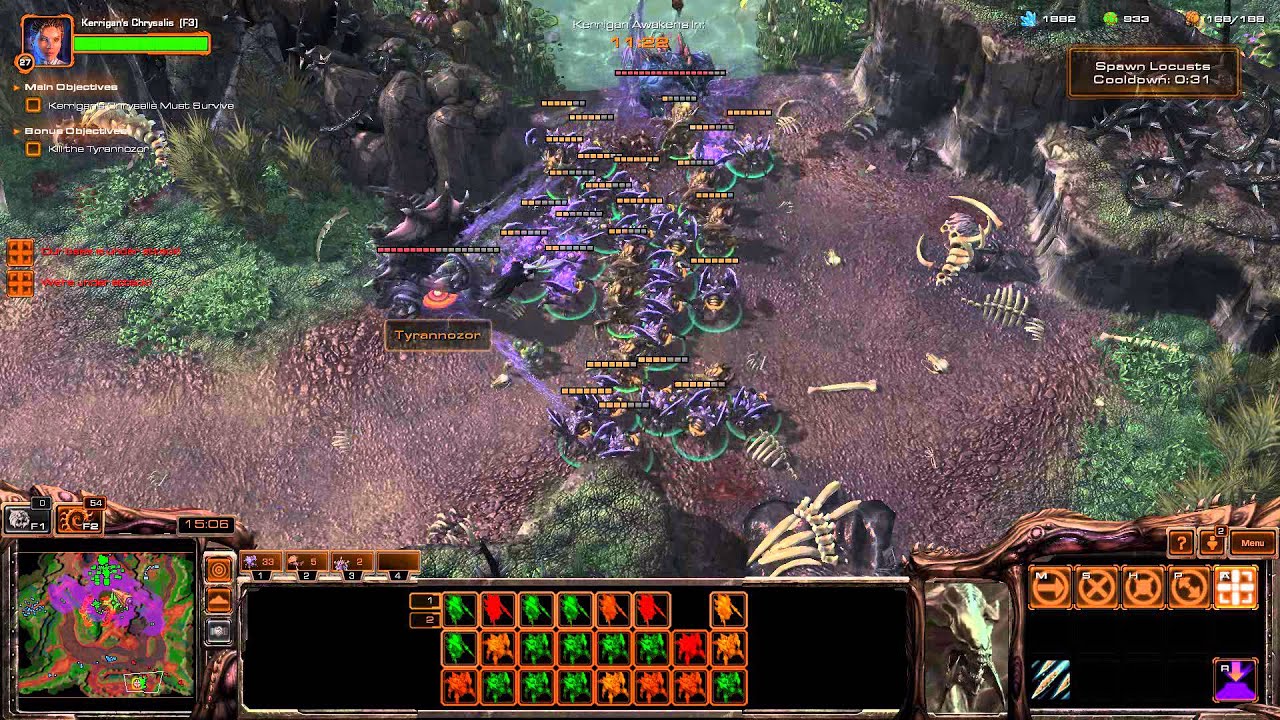From our WIKI section.
Did you know that ……. ???
Starcraft Heroes – Egon Stettman
When Egon Stetmann began his career at the Terran League research facility on Tyrador III, he found himself surrounded by like-minded, equally young and idealistic colleagues, most of whom shared his belief that their generation could hope for a brighter future for the Whole Koprulu sector worked.
Planets Starcraft – Phaeton
The harsh deserts on Phaeton are extremely hostile to life. Although the planet has breathable amounts of oxygen, there are almost no deposits of minerals or drinking water. Phaeton’s location at a great distance from the centers of the Protoss and Terran civilizations makes it even less attractive for settlement.
Starcraft Units – Mutalisk
The Mutalisk has evolved little from its original form, the roaming Mantis Screecher in the secluded Dinares Sector. In their original form, these creatures could fly both in the atmosphere and in space – but exactly how they managed to do so is unclear. Apparently they were even able to move from one star system to the next, presumably in some kind of larval form.
Starcraft Missions – Infested
In this mission, the main focus should be on getting as many Terran units under your control as possible – this should be done to increase the efficiency of your army while unlocking the achievement. A focus should be placed on the mechanical units of the Terrans, as these are particularly suitable.
Starcraft Buildings – Assimilator
The Assimilator, a Protoss structure that can only be built on top of Vespene Geysers, allows the player to collect Vespene Gas. Probes sent to an Assimilator will return Vespene Gas to the nearest Nexus. The Assimilator is equivalent to the Terran Refinery and the Zerg Extractor, but has significantly higher endurance.
Follow us and check out our social media accounts on Twitter, Facebook & YouTube ►
● on Twitter ► esport.directory
● Facebook ► esport.directory
● Youtube ► esport.directory
Starcraft
Starcraft is a turn-based game. The active player receives the obligatory first player token, so it should always be clear whose turn is being played, and especially interesting: StarCraft does not require any dice at all.
To get started, you first have to agree on your faction, then gather all the necessary figures, cards and tokens of your faction (woe betide the game master who only starts sorting now!) and leave the table in the middle free, as this is where the galaxy, i.e. the playing field, is built.
This proceeds similarly to Twilight Imperium.
Each player draws two planet tokens, which they can use to pick their planets from the planet stack. This step is necessary because the planet cards are shaped differently and the tokens are the only way to ensure that the drawing is random.
The starting player then places his first planet in the center of the table and can already build a base – but he doesn’t have to, then he has to do it on his second planet as soon as he lays it out.
Once the first planet is in place, it is the next player’s turn to lay out his first planet and connect it to the previous player’s planet with a navigation route cardboard piece. The last player may lay out both planets at the same time and then it goes in reverse order to the starting player. This way a more or less interconnected galaxy is created.
Finally, Z-axes are laid, which are navigation routes across loose ends, sort of a 3D conversion.
Each player receives the corresponding resource cards for his two planets and then only the event cards are reduced according to the number of players, shuffled and placed on the board. There are three event card phases, which is symbolized by different card backs and should help the game to become faster and more powerful towards the end. Now the game can start.
Each round is divided into three phases.
Starcraft is a turn-based game. The active player gets the obligatory first player token, so it should always be clear whose turn is being played, and most interestingly, StarCraft doesn’t require any dice at all.
To get started, you first have to agree on your faction, then gather all the necessary figures, cards and tokens of your faction (woe betide the game master who only starts sorting now!) and leave the table in the middle free, as this is where the galaxy, i.e. the playing field, is built.
This proceeds similarly to Twilight Imperium.
Each player draws two planet tokens, which they can use to pick their planets from the planet stack. This step is necessary because the planet cards are shaped differently and the tokens are the only way to ensure that the drawing is random.
The starting player then places his first planet in the center of the table and can already build a base – but he doesn’t have to, then he has to do it on his second planet as soon as he lays it out.
Once the first planet is in place, it is the next player’s turn to lay out his first planet and connect it to the previous player’s planet with a navigation route cardboard piece. The last player may lay out both planets at the same time and then it goes in reverse order to the starting player. This way a more or less interconnected galaxy is created.
Finally, Z-axes are laid, which are navigation routes across loose ends, sort of a 3D conversion.
Starcraft Gameplay, Starcraft Rankings, Starcraft Release Date, Starcraft Carrier, ‚ Starcraft Cover, Starcraft Skins, Starcraft Videos, Starcraft Video YouTube, Starcraft PS4, Starcraft Platforms, Starcraft Players, Starcraft Team,




